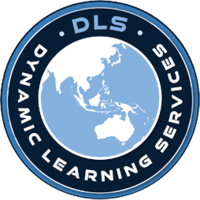
Courses for beginners
There are no courses available in Central Coast New South Wales for beginner learners with no prior experience or qualifications.
Courses for experienced learners
There are 4 courses available in Central Coast New South Wales for experienced learners with prior experience or qualifications.
Diploma of Food Science and Technology
- There are no mandated entry requirements.
 Pivotal Education
Pivotal Education
Certificate IV in Food Processing
- There are no mandated entry requirements.


Master of Food Science
- There are no mandated entry requirements.
 University of New South Wales
University of New South Wales
Graduate Certificate in Food Science
- There are no mandated entry requirements.
 University of New South Wales
University of New South Wales
Key questions
How can I become a food engineer?
To become a food engineer in Central Coast, you may want to consider completing the Diploma of Food Science and Technology. This qualification will equip you with the skills and knowledge necessary for a career in this industry.
Are there training providers in Central Coast?
You can train to become a food engineer by completing a qualification with Pivotal Education. Find a course provider near you. Once you make an enquiry, a course advisor will get in touch to discuss your study options and course fees.
What study modes are available?
There are several campuses within the Central Coast area that provide food engineer training. The closest campus is 62km away from the center of Central Coast. You can also study a food engineer course through traineeship learning. Find a course provider that best suits your study needs.
Related occupations
Explore related occupations in the food engineer sector.
Laboratory Attendant
A Laboratory Attendant performs various tasks in medical or research labs, assisting staff, collecting samples, and preparing reports while ensuring safety and accuracy.
Laboratory Technician
A Laboratory Technician operates specialist equipment in medical or research labs, conducting tests and assisting with research while ensuring accuracy and safety.
Food Tester
A Food Tester conducts laboratory tests on food products to ensure they meet safety and quality standards, reporting findings accurately.
Food Technologist
A Food Technologist develops and tests food products, ensuring safety, quality, and compliance with industry standards while working in a team.
Food Scientist
A Food Scientist studies food products and processes to improve safety and quality, conducting experiments and ensuring regulatory compliance in various settings.
Food Chemist
A Food Chemist analyses food's chemical composition to ensure safety, quality, and compliance, while developing new products and improving standards.
Food Microbiologist
A Food Microbiologist analyses microorganisms in food to ensure safety and quality, conducting tests and developing strategies to prevent contamination.
Further reading


Career spotlight: Hospitality professionals
17th September 2019)
